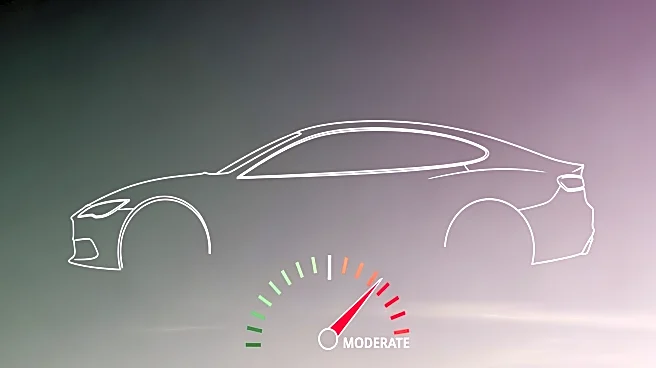What's Happening?
EU lawmakers have voted to weaken the 2040 emissions reduction target from 90% to 85% and delay the carbon price on road and heating fossil fuels (ETS2) by a year. This decision has raised concerns about
the effectiveness of climate action and the impact on Europe's green economy. The weakened target and delay make ambitious car CO2 standards more crucial than ever to provide a clear direction for businesses and consumers. The decision allows up to 5% of the target to be met with international carbon credits, which some argue could slow down investments in green technologies.
Why It's Important?
The decision to weaken the 2040 emissions target and delay ETS2 is significant as it impacts Europe's ability to meet climate goals and transition to a green economy. The weakened target may undermine efforts to reduce reliance on fossil fuels and promote renewable energy. The delay in ETS2 could affect investments in green technologies and energy security. Upholding ambitious car CO2 standards is now more important to signal Europe's commitment to a sustainable future and provide stability for businesses and consumers.
What's Next?
The decision may lead to increased pressure on EU lawmakers to strengthen climate policies and ensure that the weakened target does not hinder progress towards sustainability. Environmental groups and policymakers may advocate for stricter regulations and incentives to promote green technologies. The focus on car CO2 standards could drive innovation in the automotive industry, encouraging the development of cleaner and more efficient vehicles.
Beyond the Headlines
The decision highlights the ethical and economic dimensions of climate policy, raising questions about the balance between short-term economic interests and long-term environmental sustainability. It underscores the need for transparent and accountable decision-making processes to ensure that climate policies prioritize the health of the planet and future generations.










